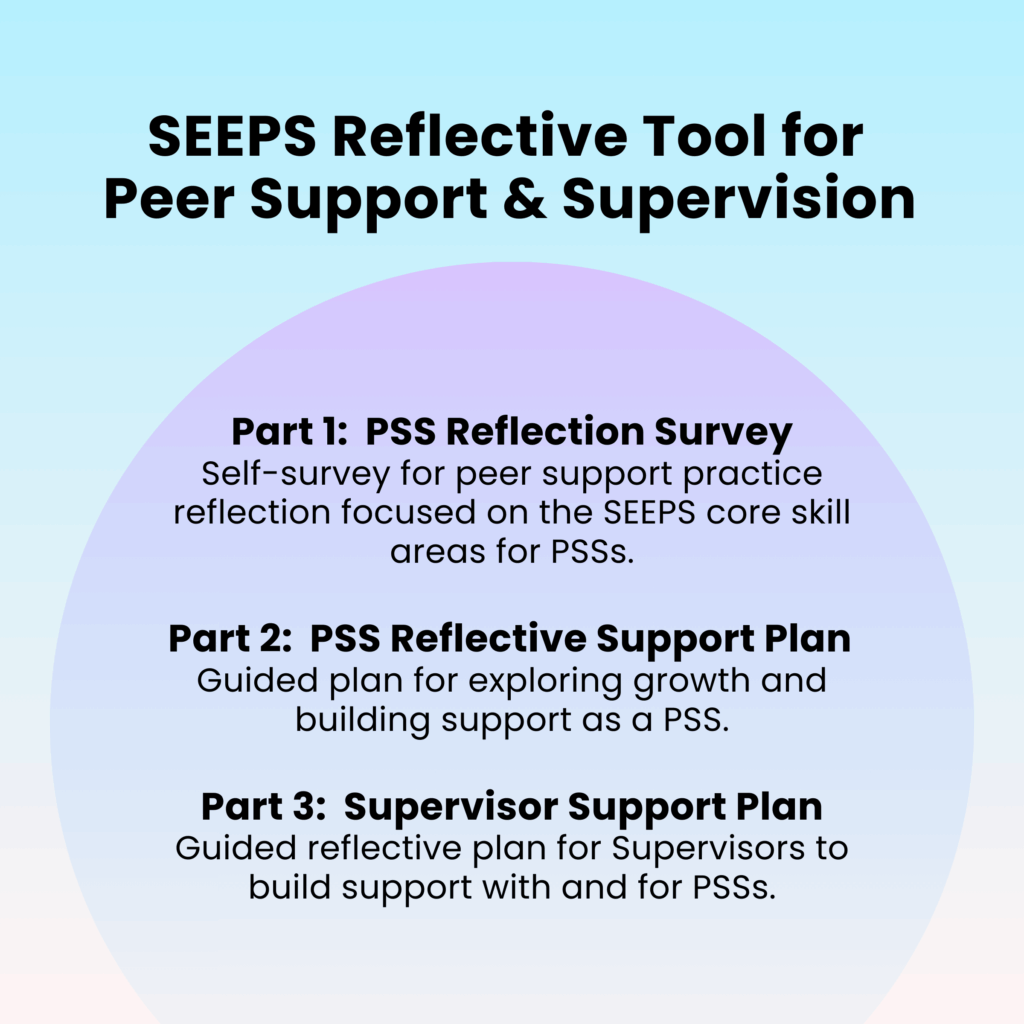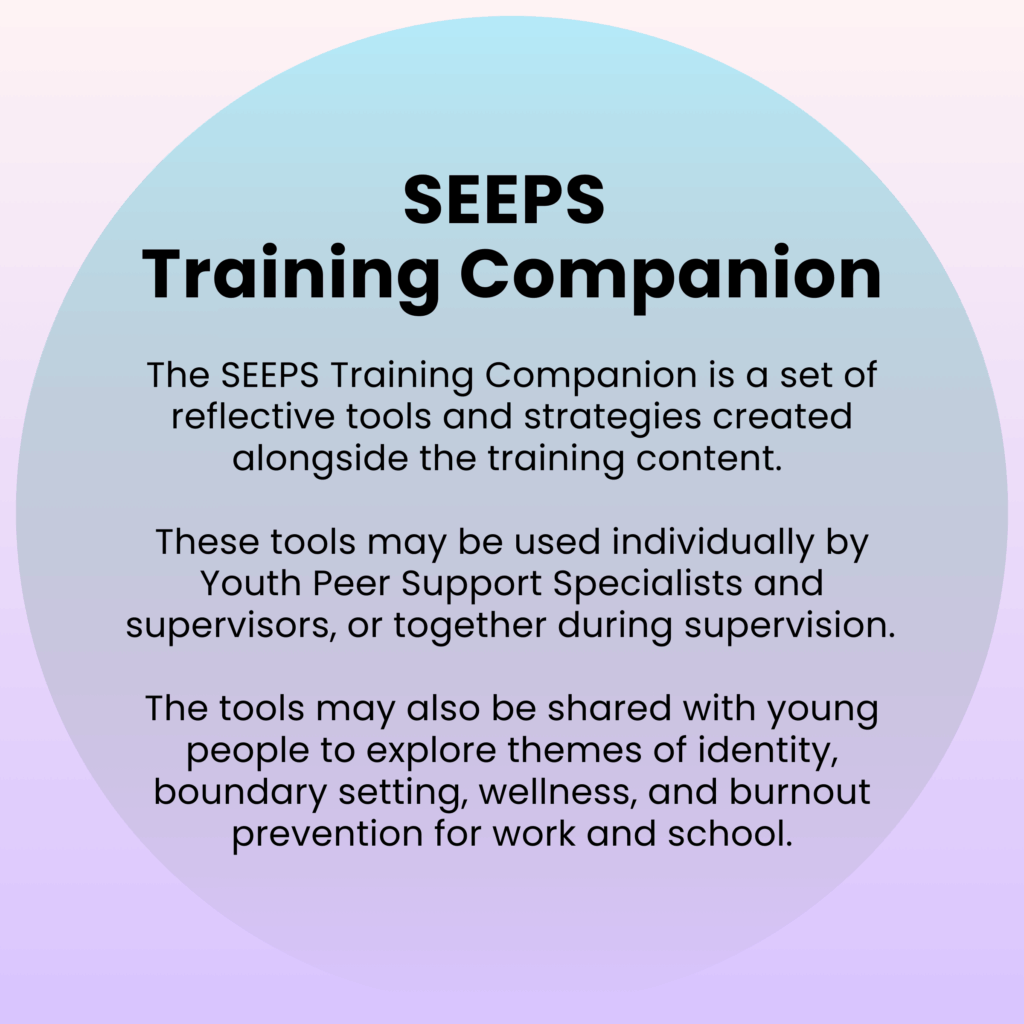
About
Skills for Expanding Expertise in Peer Support (SEEPS) was developed as part of a NIDLRR-funded research project led in partnership with Portland State University. SEEPS is a theory, set of skills, tools and comprehensive trainings for young adult Peer Support Specialists and supervisors working in Early Psychosis programs.
SEEPS Key Skills for Peer Support Specialists
- Understanding and describing the Peer Support Specialist role
- Being a peer, being genuine and drawing on personal experience
- Providing empathy and validation
- Drawing out participants’ preferences, perspectives and ideas (supporting participants’ point of view)
- Supporting personal agency and empowerment
- Supporting motivation and activity
View detailed list of definitions of SEEPS Peer Specialist skills and related challenges
Theory of Change
The SEEPS theory of change provides a framework for clarifying the role and skills of a PSS in their one-on-one work with clients, which is helpful in creating trainings, and ensuring that colleagues and supervisors are able to understand and support the PSS role. Note: PSU = “peer support users.” View summary diagram of the SEEPS Theory of Change.
SEEPS Training
We developed and virtually delivered comprehensive group trainings twice, to separate groups of Peer Support Specialists and supervisors located across the US. The “skills” component of the project was created based on a Theory of Change shaped by the participation of young adult Peer Support Specialists, supervisors, and peer support recipients.
- SEEPS Youth Peer Support Specialist Training Content Outline
- SEEPS Supervisor Training Content Outline
Training Companion
The SEEPS Training Companion is a set of reflective tools and strategies created alongside the training content. These tools may be used individually by Youth Peer Support Specialists and supervisors, or together during supervision. The tools may also be shared with young people to explore themes of identity, boundary setting, wellness, and burnout prevention for work and school.
View and download SEEPS Training Companion tools below:
Reflective Survey Tool & Support Plans

This self-guided reflective tool is an adaptable professional development resource for both Peer Support Specialists (PSSs) and supervisors, informed by the Skills for Expanding Expertise in Peer Support (SEEPS) skills and challenges.
Created by and for people with lived experience working in near-age young adult peer support, this three-part tool may be used by PSSs and Supervisors individually and/or together to reflect on skills and strengths, explore support needs, collaborate, and plan for areas of growth.
SEEPS Publications
- Relational complexity of the near-age Peer Support provider role in youth & young adult community mental health settings, The Journal of Behavioral Health Services & Research, online first. Klodnick, V. V,… LaPelusa, B. & Holland, H. (2024).
- A theory of change for one-on-one peer support for older adolescents and young adults, Children and Youth Services Review, Volume 157, 107386. Walker, J., Klodnick, V.V., LaPelusa, B. et al. (2024).

